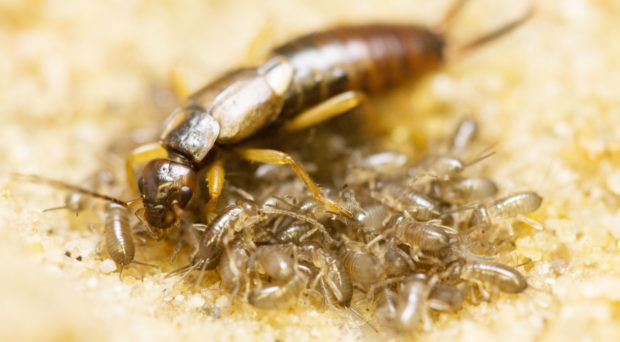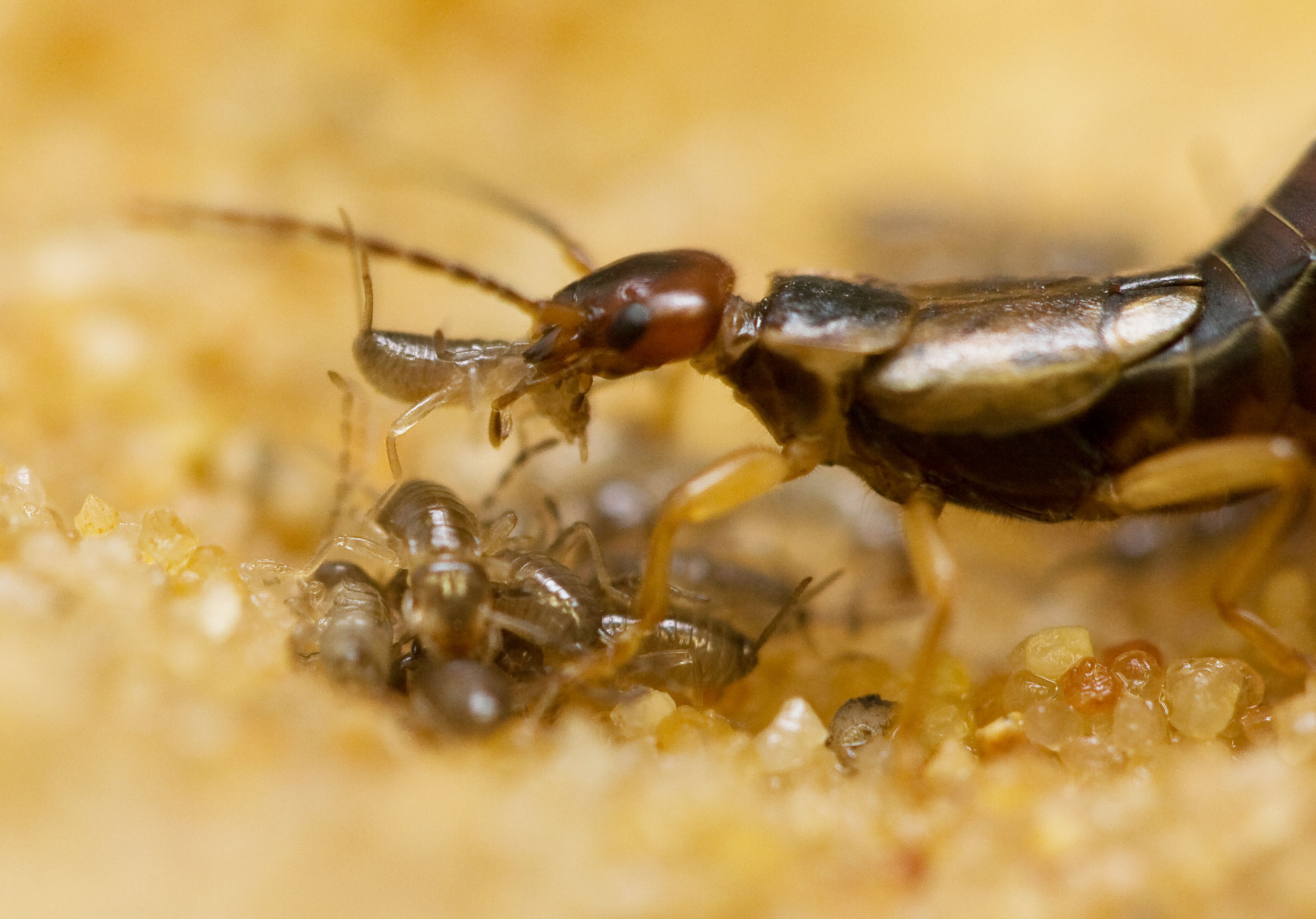
During their life, animals encounter many different threats, from predators to parasites, which can weaken or even kill them. To limit the costs of pathogen infections, hosts typically rely on their body’s immune system. But personal immunity is not the only way to be protected from pathogens. In group-living animals, social immunity describes the cooperative actions of group members to fight together against parasites and pathogens. These actions can take many different forms such as reciprocal grooming to remove external parasites, or the sanitary disposal of waste to prevent the growth of pathogenic microbes, as found in ant and bee colonies.
Social immunity is also important for species living in family groups (i.e. parents and offspring), in which parents care for their young. Not only humans have been documented to improve the immunity of their children, but also mice and rats. However, it is less clear whether such beneficial effects of parental care exist in insects and whether these benefits could have contributed to the evolution of social life.
To learn more about the influence of the mother on offspring immunity, we studied the European earwig Forficula auricularia. This insect is an interesting model to address this kind of question because earwig mothers provide multiple forms of care to their young such as food provisioning, grooming and protection against predators. Young earwigs are nevertheless mobile, can forage on their own and are thus able to develop and survive in the absence of a tending mother.
Thanks to these unique aspects of their lifestyle, we were able to investigate the effect of the mother on offspring immunity by experimentally manipulating maternal presence and parasite exposure. Based on the findings in social vertebrates, we predicted that maternal presence will improve the short- and long-term survival of offspring when exposed to a pathogen. Moreover, we expected that maternal presence either increases offspring immunity, when the resources provided by the mother facilitate the development of the immune system, or alternatively decrease offspring immunity, when young earwigs invest less in immune defenses because of the protection provided by the mother.

Surprisingly, we found that maternal presence did not affect offspring immunity in the short- or in the long-term, even when exposed to pathogens. Moreover, maternal presence appears to generally reduce offspring survival, independently of pathogen exposure. The fact that maternal presence does not influence pathogen resistance of their young indicates that while unable to ward off disease, care provided by earwig mothers might be useful in other contexts such as protection against predators or adverse climatic conditions. This also suggests that pathogen pressure does not appear to be a universal promoter for the evolution of parental care.
The surprisingly negative effect of maternal presence on offspring survival supports earlier work on earwigs, which reported that the mothers’ influence on the well-being of their offspring also depends on food availability. This highlights the complex nature of mother-offspring interactions, but also indicates that interactions among siblings might be crucial for the evolution of family life, an aspect that deserves more attention.
Overall, our findings reveal that the benefits of family interactions in terms of protection against pathogen infection are unlikely to be driven by the mother. Instead, we propose that such benefits could come from the young themselves. In earwigs, mothers and siblings line their nest with their own feces, which exhibits antimicrobial properties. That way, they possibly reduce the need of investing into their personal immunity as their habitat is largely pathogen-free. This investment in social immunity might be an important way to ensure family health. Hence, our findings show that the role of sibling behavior may be an underestimated factor in the evolution and maintenance of family life in the face of pathogen pressure.
Author websites:
Fanny Vogelweith https://fanny-vogelweith.com/
Maximilian Körner https://www.bio.uni-mainz.de/zoo/evobio/453_DEU_HTML.php
Susanne Foitzik https://www.bio.uni-mainz.de/zoo/evobio/51_DEU_HTML.php
Joel Meunier https://joelmeunier.wixsite.com/researchpage
Comments